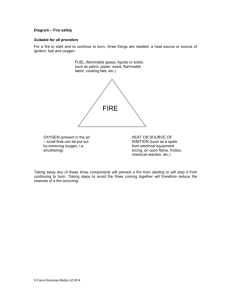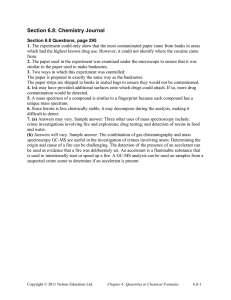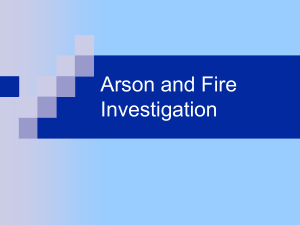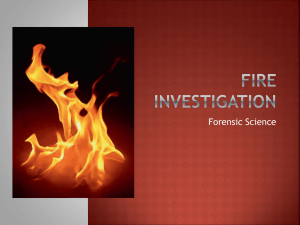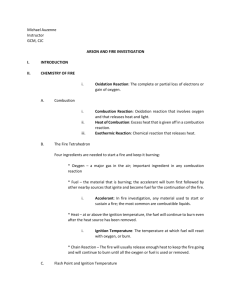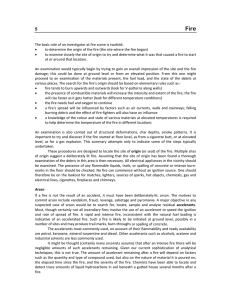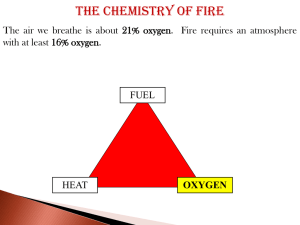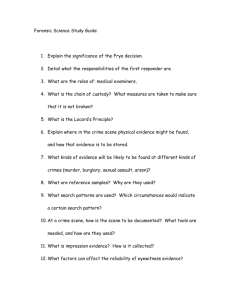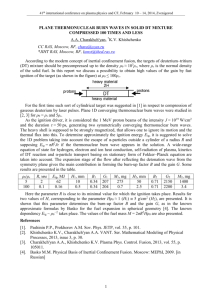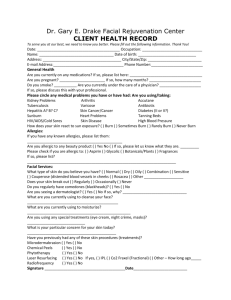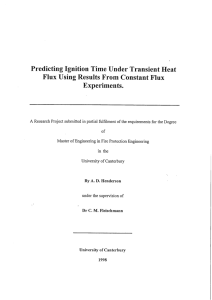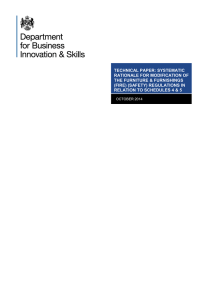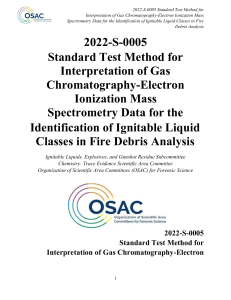Accelerant Patterns for Arson
advertisement
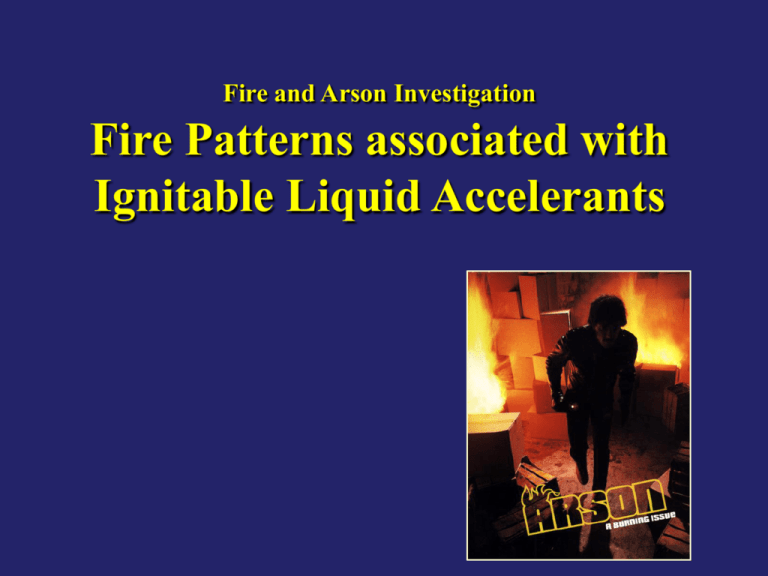
Fire and Arson Investigation Fire Patterns associated with Ignitable Liquid Accelerants “One of the major objectives of a fire scene examination is the recognition, identification and analysis of fire patterns.” NFPA 921 (2004) 4.1 Success in Recognizing Arson begins with recognizing possible Arson Fire Patterns NFPA 921 on Fire Patterns Holes in the floor may be caused by glowing combustion, radiation or an ignitable liquid. 6.2.3.1 There is no justification that the appearance of large, curved blisters is an exclusive indicator of an accelerated fire. 6.5.5 The presence or absence of spalling should not, in and of itself, be construed as an indicator of the presence or absence of a liquid fuel accelerant. 6.6.2.3 The collapse of springs cannot be used to indicate exposure to a specific type of heat source or ignition such as smoldering ignition or the presence of an ignitable liquid. 6.14 Inverted cone patterns have been interpreted as proof of flammable liquid fires, but any fuel source that produced flame zones that do not become vertically restricted can produce inverted cone patterns. 6.17.3.1.2 First! Search for Unusual, localized damage to the bed Odd Variations in Fire Patterns Unusual “localized” wall pattern Unusual floor burn pattern Witnesses Reported: Odor of Gasoline! A low pressure wave! Furniture moved before fire! Symptoms of Ignitable Liquid Use (Possible indicators of an accelerated fire) Burn injuries to the hands, face, legs or hair of a suspect/witness. Unnatural Fire Spread Afternoon Program (downward, unusually fast, etc.) “Unnatural” Fire Damage One gallon of gasoline was poured here! Bright yellow/orange flames accompanied by black smoke. Intense localized rusting/warping, especially to the undersides of metal objects within the pattern Intense localized rusting/warping, especially to the undersides of metal objects within the pattern Structural damage inconsistent with fire loading Intermixed light, medium & heavy burn patterns within the overall pattern Rainbow-colored” sheen on the surface of suppression water over the pour area. “ Accelerant containers in or near the scene. Increased burn damage pattern at the bottom of boxes, furniture legs, etc. Pool shaped, intermixed, mottled black and brown staining on concrete together with a tendency to repel water. “Ghost marks” between seams of floor tiles within the pour area. Localized “clean burn”area on a wall or appliance above a pattern where intense heat burned away soot deposits. “Inverted Cone” fire pattern Search for the soot plume! Key Properties of Common Ignitable Liquids Behave like any liquid before ignition. Most float on water, are immiscible, rainbow Form explosive vapors at room temperatures Vapors are heavier than air Readily absorbed Powerful solvents Don’t spontaneously ignite Explosive Limits/Ignition Temperature Sampling the accelerant fire pattern Related Physical Evidence The Accelerant Container Other instrumentalities (i.e. ignition device) Changing the arrangement of combustibles to increase fire loading Propping open doors & windows The ignition device Explosion/Deflagration? Burn patterns and the burned “perp” Accelerant Detection K-9 Teams are very important especially in large loss fires. A Pocket Guide to Accelerant Evidence Collection, 2nd Edition Cited as a reference in all editions of NFPA 921, Kirk’s Fire Investigation 5th Edition, interFIRE VR Go to www.maiaai.org for more information
